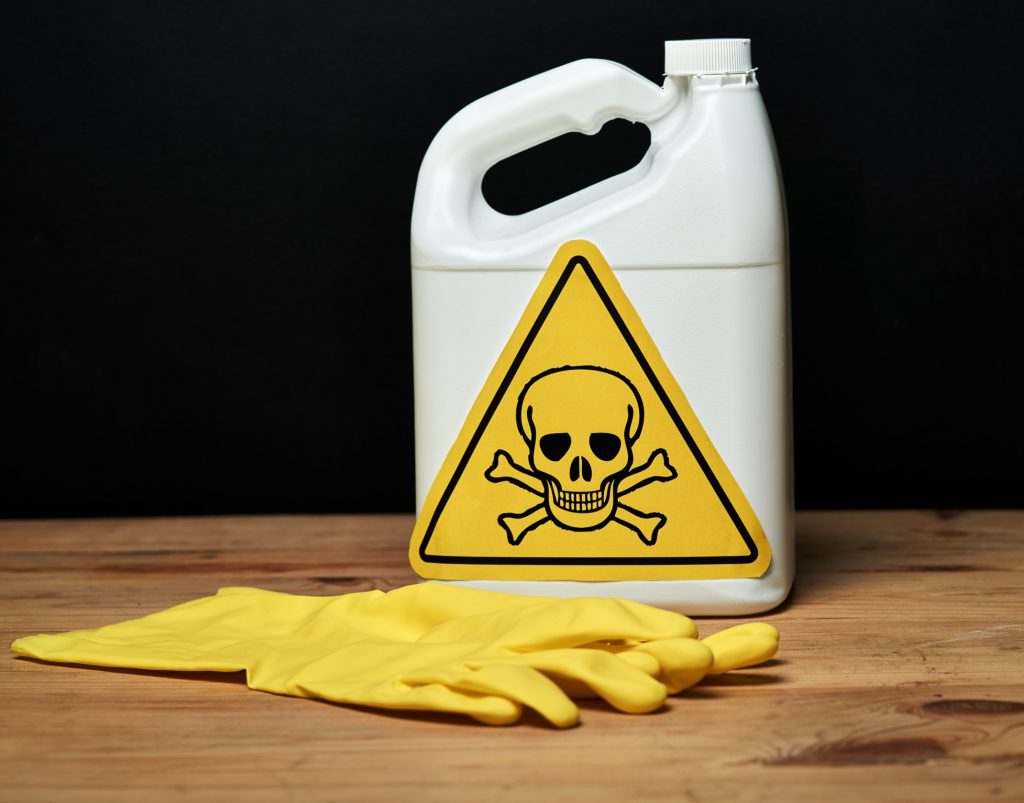When it comes time to deep clean your home, you may find yourself reaching for the heavy artillery – those potent products that cut through dirt, grime, mildew, and grease with ease.
Unfortunately, they often contain ingredients that are harmful to the environment and your health. So, what should you use instead?
Here are five chemicals often found in conventional cleaning products you may want to avoid along with some alternatives to use instead.
Ammonia
Ammonia is used in various chemical cleaning products for its ability to break down grease and grime. It evaporates quickly, leaving behind nothing but a streak-free shine.
However, direct exposure can irritate skin and eyes, and inhalation can burn respiratory passages.
Instead of ammonia, try adding a little rubbing alcohol to a 50-50 solution of white vinegar and water to get your glass surfaces sparkling clean.
Chlorine
Chlorine, which can irritate the skin and respiratory system and severely disrupt the thyroid, is commonly used in laundry whiteners, toilet bowl cleaners, and scouring powders. For a safer but equally effective cleaning solution, try a combination of baking soda and liquid dish soap to get your bathroom clean and shiny.
Phthalates
Phthalates are used to add a pleasing scent to a variety of household products. And yet they are known endocrine disruptors which can cause cancerous tumors, birth defects, and developmental disorders. Instead, choose fragrance-free products or use natural essential oils.
Sodium Hydroxide
Found in drain and conventional oven cleaners, sodium hydroxide can cause severe burns on skin and eyes as well as throat irritation if inhaled. To safely unclog drains, use a snake or sprinkle baking soda down the drain, add a little white vinegar, wait until it fizzes, then flush with hot water. For ovens, sprinkle the inside with baking soda, spray with vinegar, wait 20 to 30 minutes, then wipe clean.
2-Butoxyethanol
A common ingredient in multi-purpose cleaners, 2-butoxyethanol is added to help dissolve grease and dirt from surfaces. If inhaled, it can cause throat irritation.
With continued exposure it can cause breathing problems, low blood pressure, lower levels of hemoglobin,
as well as liver and kidney damage. Take the DIY approach and add equal parts vinegar, water, and a few drops of your favorite essential oil into a clean spray bottle for an effective household cleaner.
Cleaning products aren’t the only way potentially harmful chemicals can be entering your home.
Your city or well water can be doing the same thing but with many additional water pollutants added to the list.
If you’re concerned about the quality of your water and how it might be affecting your family’s good health, contact Messmer Mechanical today for important water quality information and a custom water filtration proposal.





